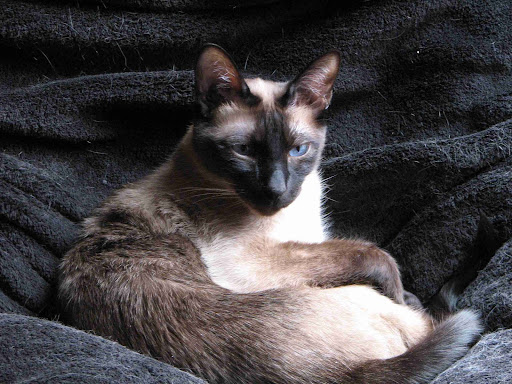- The host, Eleanor Wachtel, referred to Pullman as "a Church of England atheist", to which Pullman agreed. He seems to have an affectionate nostalgia for the Anglican Church (so does Dawkins, BTW) -- he loves the language of the King James Bible and the Book of Common Prayer (but only the old, pre-revision, version). He fondly recalls his grandfather, a vicar, as wonderful story-teller.
- Contrary to garbled reports that he loathes C.S.Lewis, he thinks Lewis' lit-crit work is excellent, and that he was a good story-teller with an engaging prose style. He likes the Narnia stories until the very end: having taken his Narnia children through many trials and tribulations, growing their strength and character, instead of having them live on in our world to make it a better place, Lewis kills them off. And this, as expressed in the last book, is an outcome devoutly to be wished -- dead and in Heaven is better than living and doing good. Pullman also can't forgive Lewis for condemning Susan for simply growing up and discovering things like a social life and sexual attraction (I don't think I agree with Pullman's interpretation, though I'm not prepared to argue a point which seems to have generated a fair amount of commentary over the years).
- The authors Pullman really doesn't like are A.A.Milne and J.R.R.Tolkien. I'm not sure what he has against Winnie the Pooh, but he dismisses LOTR as "trivial". It has, in Pullman's view, no real moral ambiguity or struggle. The good and evil are always obvious. Again, I'm not sure I agree, but then I don't have a BA from Oxford, so what do I know?
Oh, and my daemon is an osprey named "Brienne".




4 comments:
I find it interesting that he came across as affable in the interview. In the older (pre-movie publicity) print interviews I've read, he impressed me as deliberately provocative. I wonder if he is toning it down as part of marketing the movie. I've heard that the movie itself is down-playing the anti-god stuff.
I suppose it comforting to think that commercialism trumps atheism just like it does religion.
I saw the movie tonight, and yes, it apparently does play down the "anti-god stuff", though it clearly and emphatically makes a case for free inquiry ("free thinking" is, IIRC, explicitly mentioned) as against authoritarian control of belief. I haven't (yet) read the books, so I can't speak to how much it was toned down.
Hmmm, it looks like Pullman agrees with Neil Gaiman about "the problem of Susan". In the introduction to his collection Fragile Things (2006), Gaiman writes,
I read the Narnia books to myself hundreds of times as a boy, and then aloud as an adult, twice, to my children. There is so much in the books that I love, but each time I found the disposal of Susan to be intensely problematic and deeply irritating.
The short story which grew from this idea includes the line, "A god who would punish me for linking nylons and parties by making me walk through that school dining room, with the flies, to identify Ed, well . . . he's enjoying himself a bit too much, isn't he? Like a cat, getting the last ounce of enjoyment out of a mouse."
He thinks LOTR a bit thin on ambiguity? I don't get that, because yes, there are some characters that don't bend nor twist, but many characters such as Gollum show ambiguity.
Post a Comment